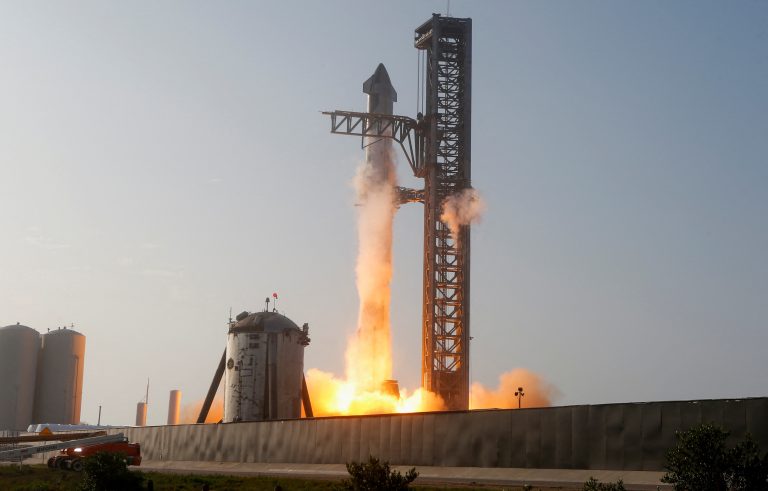Environmental groups on Monday, May 1, sued the Federal Aviation Administration (FAA) for approving the renewal of the license for rocket launches by SpaceX.
SpaceX had just received a new license extension from the FAA to launch its next-generation starship rocket in initial test flights. But right upon the launch, the rocket exploded shortly after it shattered the launch pad at liftoff.
This April 20 accident was the latest in a series of at least nine explosives mishaps at Boca Chica, SpaceX’s South Texas launch site, causing extensive damage to the habitat of many federally protected wildlife and migratory birds, according to prosecutors.
A qualified success
The plaintiffs argued that this new approval would not have been reviewed, or not sufficiently reviewed, for more extensive environmental requirements.
Musk, the company’s billionaire founder and CEO, brushed off all criticism from environmentalists in statements made during an event on April 29, describing the debris left behind by last month’s launch as “a human-made sandstorm.”
Success
You are now signed up for our newsletter
Success
Check your email to complete sign up
“It’s not toxic at all or anything,” he said light-heartedly. “It did scatter a lot of dust, but to the best of our knowledge, there has not been any meaningful damage to the environment that we’re aware of.”
In contrast, SpaceX celebrated the failed launch whereby several billion dollars were shot into the air as a qualified success because the explosion would have provided much valuable research material for the development of its starship with the Super Heavy rocket. These, in turn, are important components of NASA’s new Artemis program to launch astronauts back to the moon.
The shattering force of the launch hurled chunks of reinforced concrete and metal shrapnel thousands of feet from the site, adjacent to the Lower Rio Grande Valley National Wildlife Refuge near Boca Chica State Park and Beach.
The blast also ignited a 3.5-acre (1.4-hectare) brush fire and sent a cloud of pulverized concrete drifting 6.5 miles (10.5 km) to the northwest and raining down over tidal flats and the nearby town of Port Isabel, according to the U.S. Fish and Wildlife Service.
READ MORE:
- SpaceX Facilities Littered With Damage Following Historic Launch of Starship
- SpaceX Falcon 9 Rocket Deploys 46 Starlink Satellites to Low-Earth Orbit
- NASA: Rocket That Will Crash Into The Moon Is From China, Not SpaceX
- In Historic First SpaceX to Launch Four Civilians Into Space
The 31-page complaint seeks to revoke the FAA license and require a full environmental impact study (EIS). The disturbances show the FAA violated federal law by permitting expanded operations at Musk’s Starbase in Boca Chica without mandating the EIS normally required for major projects, the lawsuit asserts.
The FAA’s chief of staff for the Office of Commercial Space Transportation had stated in a June 2020 email that the agency intended to conduct an EIS, but the FAA “subsequently deferred to SpaceX” and instead conducted a less thorough assessment, according to the lawsuit documents.
SpaceX had vigorously opposed subjecting its Starbase to an EIS review, a process that typically takes years. An EIS involves extensive analysis of the project at stake and alternatives, along with mitigation plans to curb or offset harmful impacts. It also entails public review and comment and often re-evaluation and supplemental study.
Then, after a much less thorough review, the FAA granted SpaceX a launch permit extension, the plaintiffs argued.
Effectively grounded
The lawsuit, however, challenged this finding and argued that the approval would violate the National Environmental Policy Act and argued that the assessment and mitigation measures included in the permit did not meet the requirements of the law.
“It’s vital that we protect life on Earth even as we look to the stars in this modern era of spaceflight,” said Jared Margolis, a senior attorney at the Center for Biological Diversity, one of several groups bringing the suit in federal court in the District of Columbia.
Musk has said SpaceX plans to install a water-cooling system and steel reinforcements for the launchpad to prevent a repeat of blastoff damage and could be ready for another test flight of the rocket, the most powerful ever built, in the next couple of months.
For the time being, the Starship and the Super Heavy rocket are effectively grounded under a “mishap” investigation opened by the FAA immediately after the launch, as required by law.
Reuters contributed to this report.
















